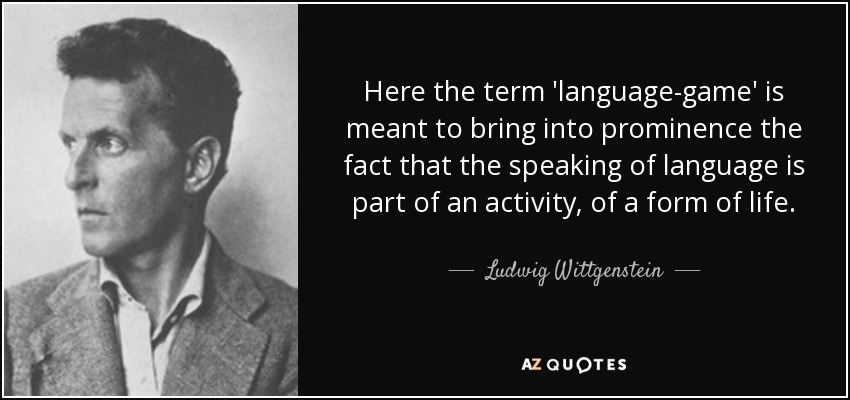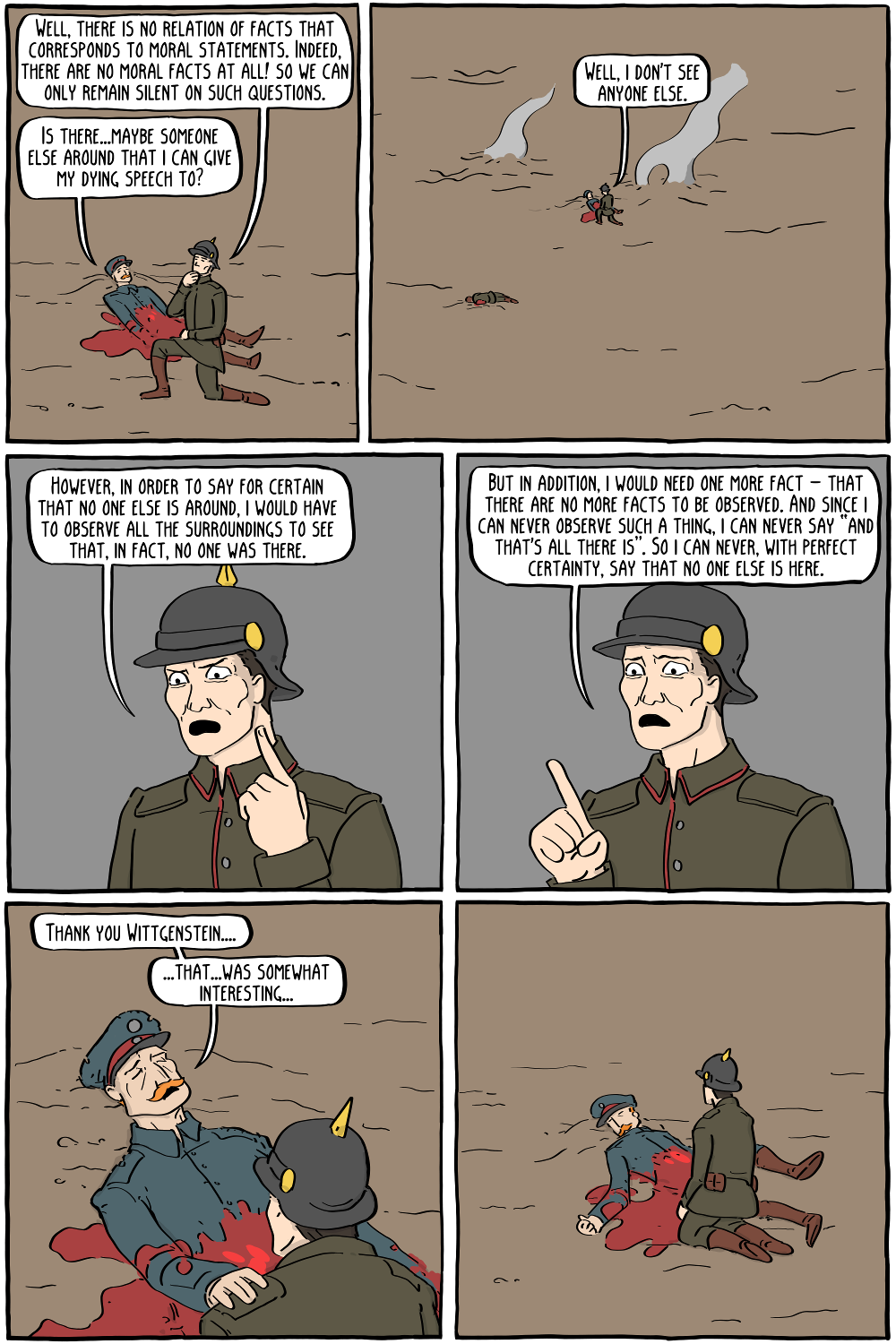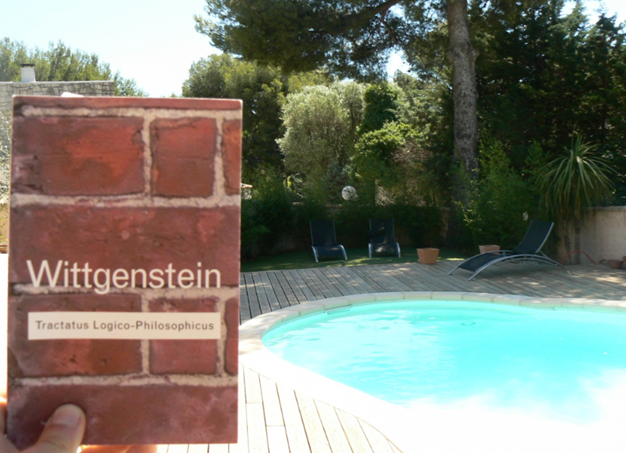"The most perfect example I have ever known of genius as traditionally conceived: passionate, profound, intense, and dominating." Bertrand Russell
Hi y’all! I hope you’re having a great day. After a bit of background research, I have come to the conclusion that among the myriad famous INFJ threads, the name of Ludwig Wittgenstein remains largely absent. Since the man belongs to my top 3 favourite philosophers, and is perhaps the most important philosopher of the twentieth century, I thought that I would dedicate a thread to him. Given that this is an INFJ thread rather than a philosophy one, I will try to speak about Wittgenstein “as an INFJ” – a very special kind of INFJ, in fact.
Biographical sketch
Wittgenstein was born in Vienna in 1889 and died from cancer in Cambridge, UK in 1951. His family was one of the wealthiest in Austria, though he eventually donated all of his inheritance to his siblings, as well as to a number of artists. Wittgenstein suffered from depression for most of his life, and so did the rest of his family. Three of his brothers committed suicide. He spent much of his life either philosophising, avoiding philosophy, or being an extremely brave participant in WWI and WWII, for which he was decorated numerous times.
The book that first established his reputation as a first-rate philosopher, the Tractatus Logico-Philosophicus, was actually written during WWI. What is really interesting about this is that Wittengstein never actually wrote a PhD dissertation. Would you believe that! He initially graduated in engineering, though he soon became interested in logic and the philosophy of mathematics. He was eventually advised to get in touch with Bertrand Russell at Cambridge, who read the little 75-page book and immediately went to the university’s rectorate. “I know that this cannot be considered a doctoral dissertation, but it is my personal conviction that this is a work of genius.” So Wittgenstein became a university professor at Cambridge and remained so for the rest of his life. Still he went through various periods of having to completely withdraw from philosophy. He worked as a gardener for a while, as well as an architect for two years in Austria. He disliked being known.
What makes Wittgenstein a very special INFJ
First: the pristine beauty of his Ni
Wittgenstein’s indisputable INFJness actually explains why he was such a special philosopher, to an extent. As I believe most of you will agree, the discipline of logic within philosophy isn’t necessarily the most fun to study or discuss. It is often a sanctuary for INTPs (no offense @wolly.green!), and in fact, it was not really mentioned by anyone on the thread I created on this forum about Philosophy last week. Logic can be a little arid, and abstract for the sake of it. In that sense it is quite similar to grammar. Well – it so happens that Wittgenstein is arguably the most important logician the world has known in centuries, with the possible exception of Quine, Gödel, and Frege (all of them thorough INTxs, of course).
Wittgenstein’s Ni led him to ask himself a lot of meta-questions about logic. He was stricken with insights and “aha” moments seemingly every day of his life. What is logic? What can it tell us about the world? Those were the things that Wittgenstein was asking himself for large part of his life. Although he considered himself a quietist, that is, a pursuer of logic to solve philosophical puzzles and feel relieved and happy as a result, the sheer strength and multitude of his insights led him to re-open the path towards a reconciliation of logic and metaphysics. His initial plan was to “solve” metaphysics through logic; what actually happened was a wholly new metaphysical view.
To illustrate Wittgenstein’s beautiful reconciliation of logic and metaphysics, let me refer to three famous quotes of his:
“The world is all that is the case.”
“Logic is not a body of doctrine, but a mirror-image of the world.”
“The limits of my language mean the limits of my world.”
I believe us INFJs can already recognise something unmistakably Ni in this. Even such as statement as “The world is all that is the case” is evidently the product of a powerful insight which Wittgenstein could not quite have explained when it struck him. No traditional logician would ever have dared, or even thought of, saying such a thing, much less beginning the Tractatus with this statement. But even this idea that logic is a mirror-image of the world, I mean – what a beautiful idea this is! It means that every statement we can make about ourselves, and which is neither false nor meaningless (=true), corresponds to an actual situation in our world, whether physical or mental. Wittgenstein would have said that logical propositions were pictures of the world. It’s almost like any sentence you pronounce, though it can be broken down into logical symbols, can also be rendered as a painting, with the different objects relating to each other according to what the proposition expresses. And the complete congregation of all these paintings, which can be expressed verbally through language, summarises what “my world” is. The beauty of these musings continues to inspire and move me every day.
Second: his weird ethical quirks, and those moments when he struggled to express or completely come to terms with what he was thinking
I shall be brief about the ethical quirks, but it’s well-known that Wittgenstein, although mostly reserved, occasionally went through periods when he would suddenly feel the need to go to people he knew and loved, and tell them about things he’d “done” to them behind their back. Sometimes the confessions would amount to admitting that he had lied to them in the past, often about the most trivial matters, such as stealing their pen or inventing a silly excuse for not going out. This would have typically left his mostly NT friends completely dumbfounded.
As for his struggling to express the complexity of his thought, some citations from his notebooks and works shall suffice to illustrate how his Ni bothered him once again:
“One often makes a remark and only later sees how true it is.” (1914)
“My difficulty is only an — enormous — difficulty of expression.” (1915)
“I cannot get from the nature of the proposition to the individual logical operations!!!” (1915)
“What cannot be imagined cannot even be talked about.” (1916)
“Don't for heaven's sake, be afraid of talking nonsense! But you must pay attention to your nonsense.” (1947)
“It's only by thinking even more crazily than philosophers do that you can solve their problems. (1947)
“Uttering a word is like striking a note on the keyboard of the imagination.” (1953)
“My aim is: to teach you to pass from a piece of disguised nonsense to something that is patent nonsense.” (1953)
“If a lion could talk, we could not understand him.” (1953)
Third: his gaze
I mean, you only have to look at it. If you don’t recognize Ni in it, you have a problem.

I hope you enjoyed this little post, and that I was able to impart some of my passion for Ludwig Wittgenstein to you!
Hi y’all! I hope you’re having a great day. After a bit of background research, I have come to the conclusion that among the myriad famous INFJ threads, the name of Ludwig Wittgenstein remains largely absent. Since the man belongs to my top 3 favourite philosophers, and is perhaps the most important philosopher of the twentieth century, I thought that I would dedicate a thread to him. Given that this is an INFJ thread rather than a philosophy one, I will try to speak about Wittgenstein “as an INFJ” – a very special kind of INFJ, in fact.
Biographical sketch
Wittgenstein was born in Vienna in 1889 and died from cancer in Cambridge, UK in 1951. His family was one of the wealthiest in Austria, though he eventually donated all of his inheritance to his siblings, as well as to a number of artists. Wittgenstein suffered from depression for most of his life, and so did the rest of his family. Three of his brothers committed suicide. He spent much of his life either philosophising, avoiding philosophy, or being an extremely brave participant in WWI and WWII, for which he was decorated numerous times.
The book that first established his reputation as a first-rate philosopher, the Tractatus Logico-Philosophicus, was actually written during WWI. What is really interesting about this is that Wittengstein never actually wrote a PhD dissertation. Would you believe that! He initially graduated in engineering, though he soon became interested in logic and the philosophy of mathematics. He was eventually advised to get in touch with Bertrand Russell at Cambridge, who read the little 75-page book and immediately went to the university’s rectorate. “I know that this cannot be considered a doctoral dissertation, but it is my personal conviction that this is a work of genius.” So Wittgenstein became a university professor at Cambridge and remained so for the rest of his life. Still he went through various periods of having to completely withdraw from philosophy. He worked as a gardener for a while, as well as an architect for two years in Austria. He disliked being known.
What makes Wittgenstein a very special INFJ
First: the pristine beauty of his Ni
Wittgenstein’s indisputable INFJness actually explains why he was such a special philosopher, to an extent. As I believe most of you will agree, the discipline of logic within philosophy isn’t necessarily the most fun to study or discuss. It is often a sanctuary for INTPs (no offense @wolly.green!), and in fact, it was not really mentioned by anyone on the thread I created on this forum about Philosophy last week. Logic can be a little arid, and abstract for the sake of it. In that sense it is quite similar to grammar. Well – it so happens that Wittgenstein is arguably the most important logician the world has known in centuries, with the possible exception of Quine, Gödel, and Frege (all of them thorough INTxs, of course).
Wittgenstein’s Ni led him to ask himself a lot of meta-questions about logic. He was stricken with insights and “aha” moments seemingly every day of his life. What is logic? What can it tell us about the world? Those were the things that Wittgenstein was asking himself for large part of his life. Although he considered himself a quietist, that is, a pursuer of logic to solve philosophical puzzles and feel relieved and happy as a result, the sheer strength and multitude of his insights led him to re-open the path towards a reconciliation of logic and metaphysics. His initial plan was to “solve” metaphysics through logic; what actually happened was a wholly new metaphysical view.
To illustrate Wittgenstein’s beautiful reconciliation of logic and metaphysics, let me refer to three famous quotes of his:
“The world is all that is the case.”
“Logic is not a body of doctrine, but a mirror-image of the world.”
“The limits of my language mean the limits of my world.”
I believe us INFJs can already recognise something unmistakably Ni in this. Even such as statement as “The world is all that is the case” is evidently the product of a powerful insight which Wittgenstein could not quite have explained when it struck him. No traditional logician would ever have dared, or even thought of, saying such a thing, much less beginning the Tractatus with this statement. But even this idea that logic is a mirror-image of the world, I mean – what a beautiful idea this is! It means that every statement we can make about ourselves, and which is neither false nor meaningless (=true), corresponds to an actual situation in our world, whether physical or mental. Wittgenstein would have said that logical propositions were pictures of the world. It’s almost like any sentence you pronounce, though it can be broken down into logical symbols, can also be rendered as a painting, with the different objects relating to each other according to what the proposition expresses. And the complete congregation of all these paintings, which can be expressed verbally through language, summarises what “my world” is. The beauty of these musings continues to inspire and move me every day.
Second: his weird ethical quirks, and those moments when he struggled to express or completely come to terms with what he was thinking
I shall be brief about the ethical quirks, but it’s well-known that Wittgenstein, although mostly reserved, occasionally went through periods when he would suddenly feel the need to go to people he knew and loved, and tell them about things he’d “done” to them behind their back. Sometimes the confessions would amount to admitting that he had lied to them in the past, often about the most trivial matters, such as stealing their pen or inventing a silly excuse for not going out. This would have typically left his mostly NT friends completely dumbfounded.
As for his struggling to express the complexity of his thought, some citations from his notebooks and works shall suffice to illustrate how his Ni bothered him once again:
“One often makes a remark and only later sees how true it is.” (1914)
“My difficulty is only an — enormous — difficulty of expression.” (1915)
“I cannot get from the nature of the proposition to the individual logical operations!!!” (1915)
“What cannot be imagined cannot even be talked about.” (1916)
“Don't for heaven's sake, be afraid of talking nonsense! But you must pay attention to your nonsense.” (1947)
“It's only by thinking even more crazily than philosophers do that you can solve their problems. (1947)
“Uttering a word is like striking a note on the keyboard of the imagination.” (1953)
“My aim is: to teach you to pass from a piece of disguised nonsense to something that is patent nonsense.” (1953)
“If a lion could talk, we could not understand him.” (1953)
Third: his gaze
I mean, you only have to look at it. If you don’t recognize Ni in it, you have a problem.

I hope you enjoyed this little post, and that I was able to impart some of my passion for Ludwig Wittgenstein to you!
Last edited:





